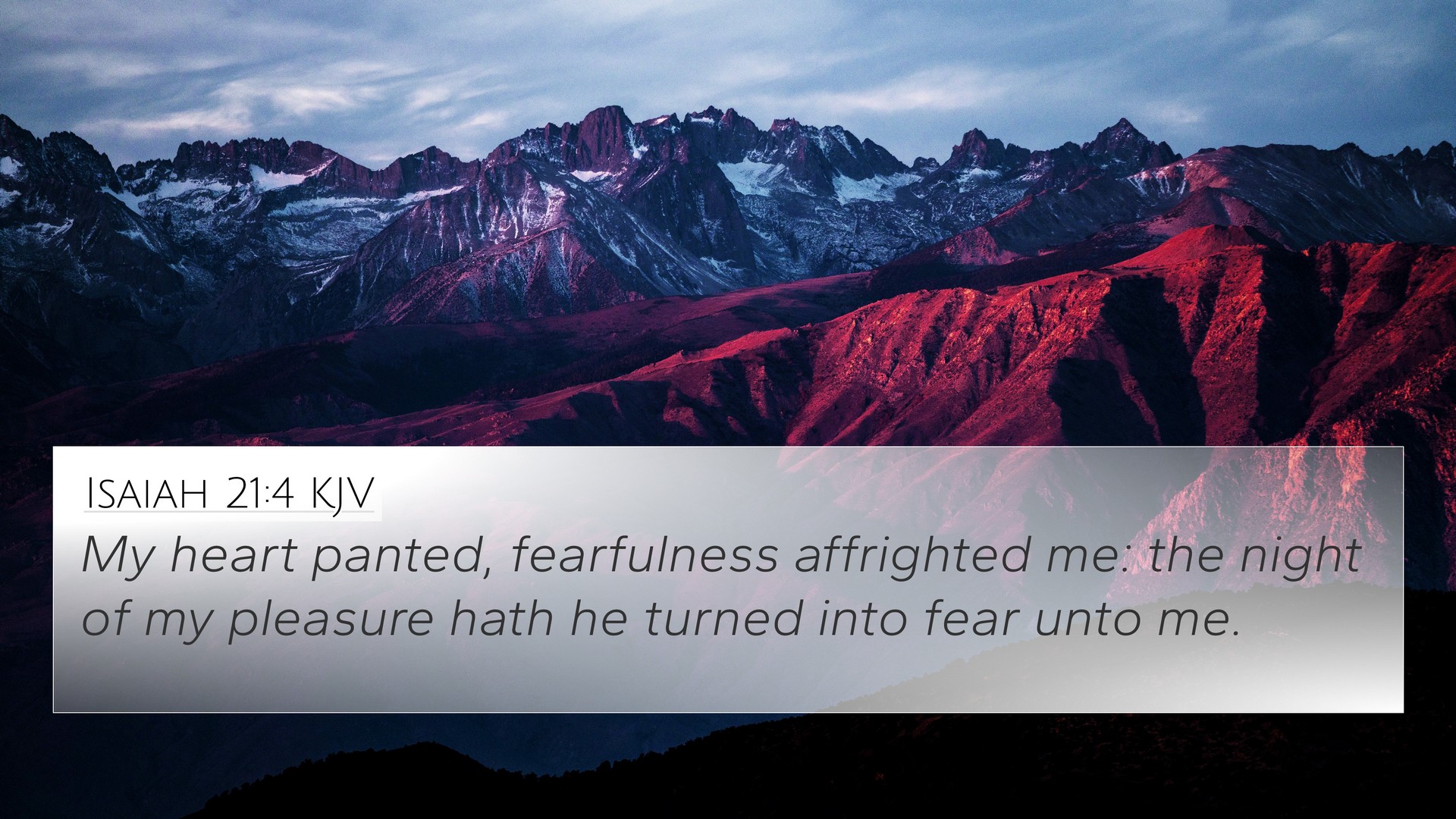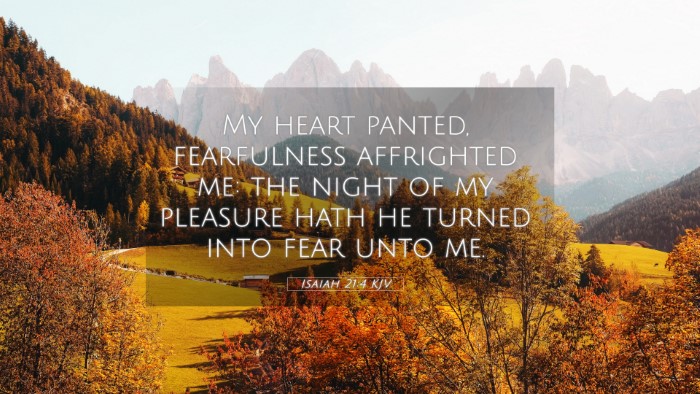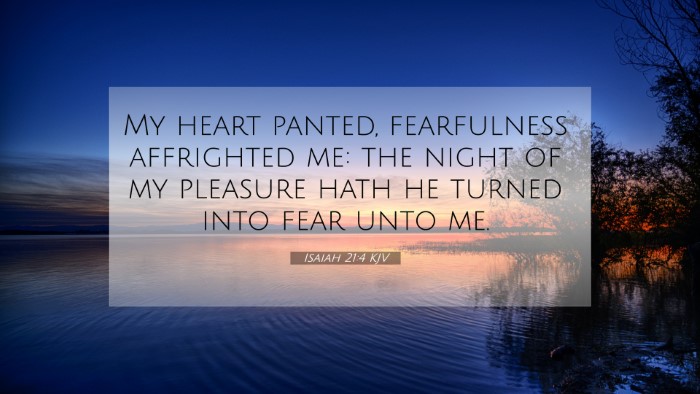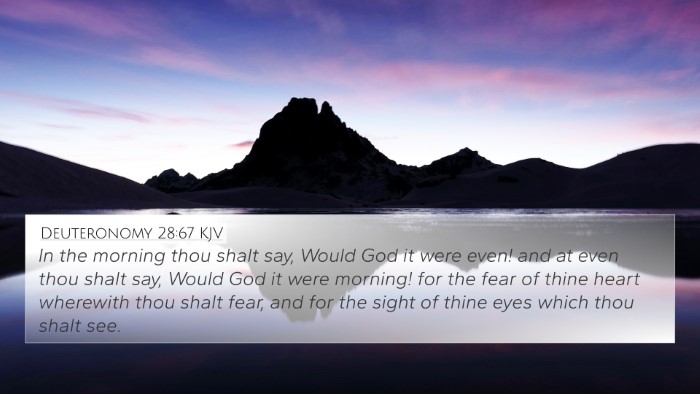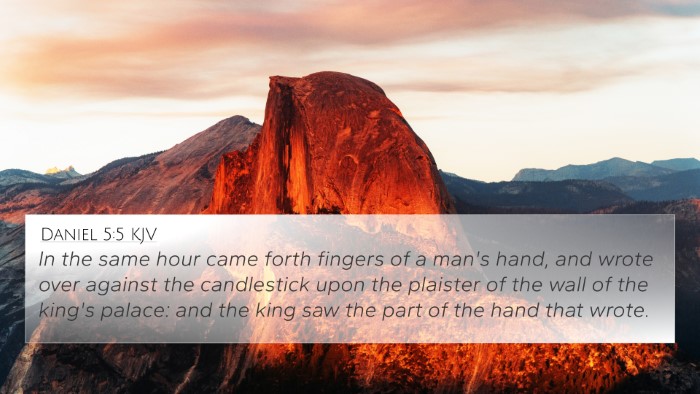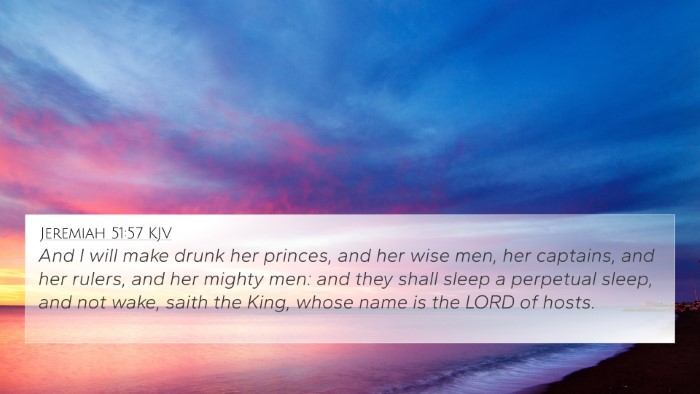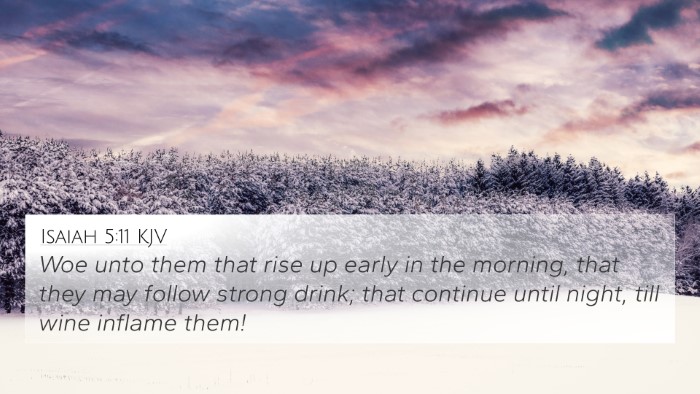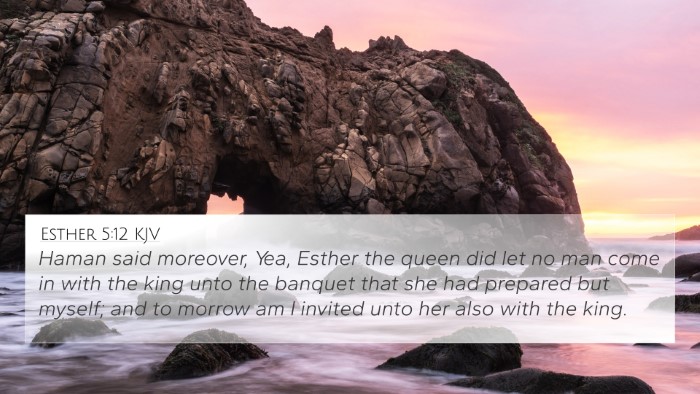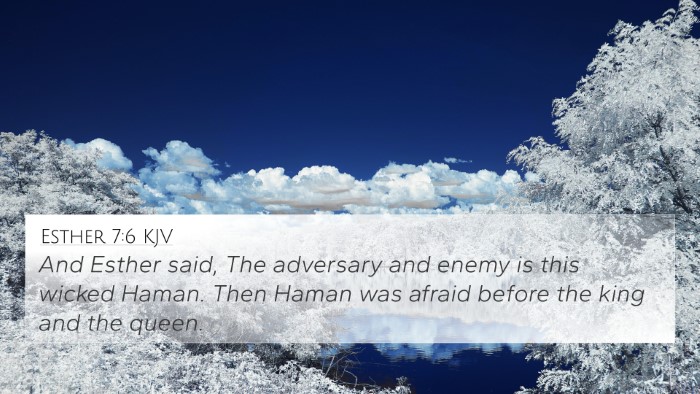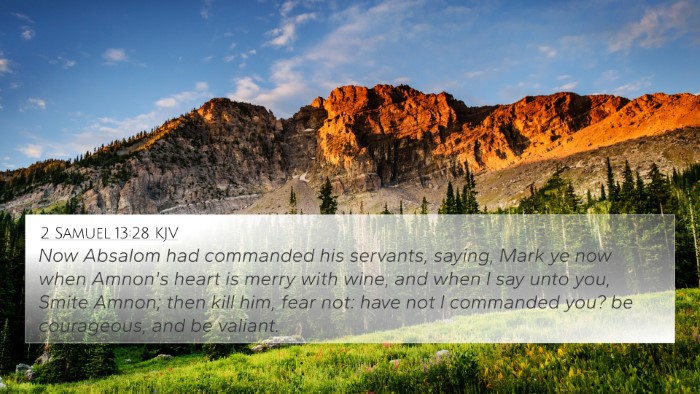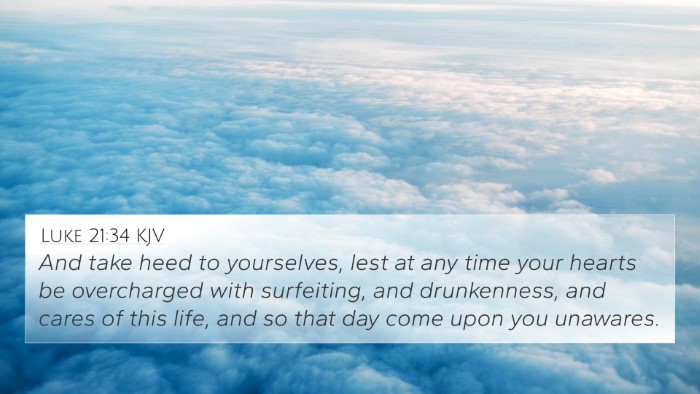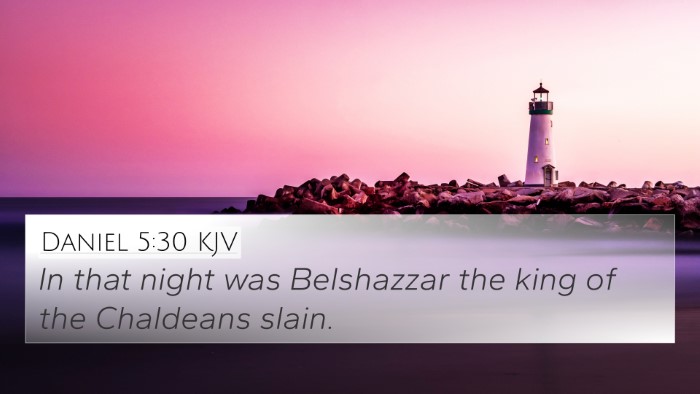Understanding Isaiah 21:4
Isaiah 21:4 states:
"My heart panted, fearfulness affrighted me: the night of my pleasure hath he turned into fear unto me."
Summary of Insights from Public Domain Commentaries
This verse highlights the intense emotional state of the prophet Isaiah as he experiences distress and fear. Here, we will explore several commentaries to gain a deeper understanding of its meaning.
1. Matthew Henry's Commentary
Matthew Henry emphasizes that this verse reflects the prophet's deep anguish as he perceives impending doom. The heart 'panting' indicates anxiety, suggesting that Isaiah experienced overwhelming emotions due to a vision of destruction or a revelation regarding the fate of Babylon. He notes that the 'night of pleasure' symbolizes an era of peace or satisfaction that has been replaced by fear.
2. Albert Barnes' Notes
Albert Barnes interprets the 'heart panted' phrase as an expression of extreme distress. He posits that Isaiah's prophetic role exposes him to the realities of impending judgment; thus, his pastoral concern for the people generates this overwhelming feeling of fear. Barnes also connects this verse to the emotional burden of prophecy, where the prophet often bears the weight of divine revelation concerning judgment and restoration.
3. Adam Clarke's Commentary
Adam Clarke draws attention to the metaphorical language in this verse. He suggests that the 'night of my pleasure' indicates a time when the prophet might have had joy or comfort. However, this joy has been disrupted. Clarke points out the profound transformation of circumstances experienced by Isaiah, illustrating the emotional and spiritual turmoil that accompanies prophetic revelations.
Key Themes and Cross-References
This verse can be seen in conjunction with several themes throughout the Bible, showcasing the interconnectedness of Scripture. Below are key themes and cross-reference verses:
- Fear and Distress: Jeremiah 4:19 - "My anguish, my anguish! I writhe in pain! Oh, the agony of my heart!"
- Divine Revelation: Ezekiel 2:6 - "And you, son of man, do not be afraid of them or their words."
- Impending Judgment: Micah 1:9 - "For her wound is incurable; it has come to Judah. It has reached the gate of my people."
- Transformation of Joy to Mourning: Psalms 30:5 - "Weeping may stay for the night, but joy comes in the morning."
- Prophet's Burden: Lamentations 3:1-2 - "I am the man who has seen affliction..."
- Divine Comfort in Distress: 2 Corinthians 1:3-4 - "Praise be to the God and Father of our Lord Jesus Christ, the Father of compassion and the God of all comfort."
- Emotional Turmoil: Proverbs 12:25 - "Anxiety weighs down the heart, but a kind word cheers it up."
Cross-Referencing Biblical Texts
Understanding the connections between Isaiah 21:4 and other biblical texts can enrich our understanding of the psychological and spiritual struggles of the prophets, as well as the themes of fear, judgment, and divine calling. Below, we explore how these verses interconnect:
Connecting Themes
- Judgment and Deliverance: Isaiah 21:4 parallels Matthew 24:8 which discusses birth pains, indicating that the coming of the Lord will be preceded by distress.
- The Role of the Prophet: Isaiah's fear in this verse connects with Hebrews 11:32-34, illustrating the challenges faced by those who acted in faith.
- Emotional Responses to Divine Message: Compare with Job 30:26, where Job speaks of hope turning into despair.
Bible Study Methods for Enhanced Understanding
The analysis of Isaiah 21:4 provides opportunities for deeper study through various cross-referencing techniques. Here are some tools and methods for effective Bible study:
- Bible Concordance: Utilize a concordance to find keywords related to fear and prophecy.
- Bible Cross-reference Guide: Implement guides that categorize verses thematically.
- Cross-referencing Bible Study Methods: Engage in thematic studies focusing on emotions in prophecy.
- Comprehensive Bible Cross-reference Materials: Compile a resource list that includes verses similar to Isaiah 21:4.
Conclusion
Isaiah 21:4 illustrates the intense emotional experiences of the prophet amidst prophecies of judgment and destruction. By examining this verse through the lens of various commentaries and the wealth of interconnected scriptural references, one gains a multifaceted understanding of prophetic literature. Such verses serve as both a warning and a source of deep reflection on the nature of God’s messages to His people.
